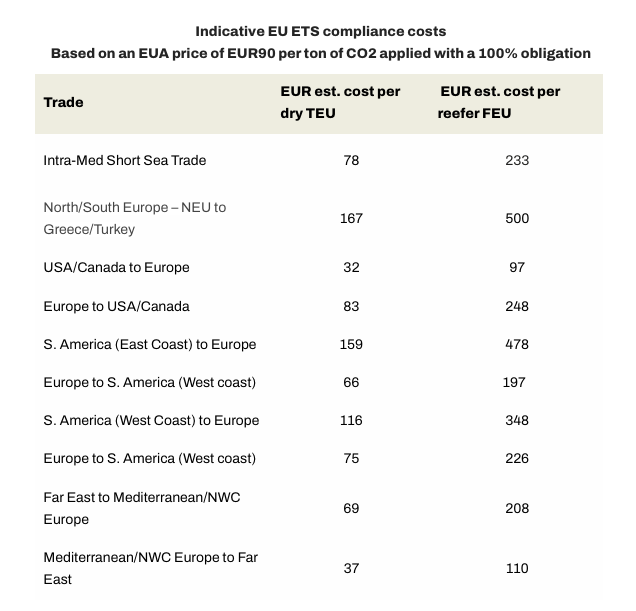
The EU is currently considering at least two paths for expansion of the European Union Emissions Trading System (EU ETS). The European Commission has proposed a phased-in approach for the shipping industry over the next four years, beginning on 1 January 2023. Meanwhile, the Parliament has recommended 100% application from the start. The final start date for coverage has yet to be determined, as the legislative process is still ongoing, according to the press release of MSC. The company has assessed the cost of compliance.
“Should the EU fully implement its plans, we anticipate higher operating costs in order to be compliant. We therefore plan to pass on the cost of compliance, as we have done with other forms of environmental regulatory costs in the past. This will depend on the price of the EUAs and on whether the shipping industry’s involvement is phased-in over several years, or required 100% from day one”, says MSC. Each trade, comprising a number of MSC services, will have its own charging structure for inbound and outbound cargo to compensate for the new costs from the need to acquire these allowances.
As an example, based on an EUA price of EUR90 per ton of CO2 applied with a 100% obligation, we would envisage adding the cost on our Far East to North Europe trade of EUR69 per TEU for dry containers and EUR208 per FEU for reefer containers. North Europe to Asia, the cost would be EUR37 per dry TEU and EUR110 per reefer FEU.
In June 2022, The European Parliament voted for the ETS extension to maritime transport. The legislation would apply to 100% of intra-EU voyages and 50% of extra-EU voyages for all vessels above 5000GT. Initially, it was planned to put the system into force on 1 January 2024.



